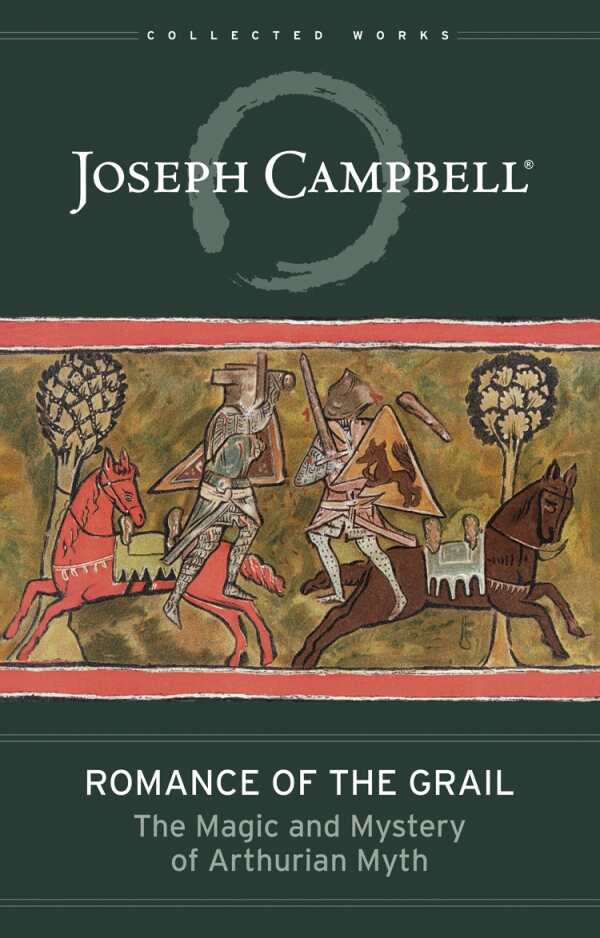Romance of the Grail
The Magic and Mystery of Arthurian Myth
Appealing to anyone with an interest in Arthurian legend, this collection of Joseph Campbell’s lectures is witty and engaging.
Preeminent mythologist Joseph Campbell’s lectures on Arthurian legend and Grail mythology are transcribed and collected into one cohesive text in this brilliant addition to the late Campbell’s impressive body of work. Known as the man who made mythology accessible to the masses, Campbell presents his material clearly enough for academics and laymen alike.
Divided into three sections, the work explores the historical climate in which the Arthurian myths were developed, the “questing knights” stories that make up the mythology (namely Parzival, Gawain, Tristan, and the Knights of the Round Table), and the various themes found repeated in these stories. Campbell is entertaining, injecting his lectures with humor even as he imparts knowledge. Here Parzival has been defeating knights in battle and sending them to serve Cunneware in King Arthur’s court:
With all these famous defeated knights coming, Arthur finally says, “We’ve got to go find that fellow.” So the whole court of Camelot packs up and leaves. In those days a thing like this was a kind of first-rate picnic, with all the pavilions, ladies, and horses.
The work is appended with Campbell’s master’s thesis from Columbia, which focuses on the dolorous stroke from Arthurian mythology. It is interesting to see the expansion of his ideas, with concepts that are touched upon in the thesis drawn out more fully in the later work that makes up the bulk of the book. Especially of interest is the Eurocentric nature of the early thesis and how that falls away in his later work. Campbell is well known for his idea of global patterns of mythology, and the text of Romance of the Grail draws links between Arthurian myth and mythology from Asia, India, and Africa. Various bibliographies and an index complete the work.
Editor Evans Lansing Smith, chair of mythological studies at the Pacifica Graduate Institute, has done a wonderful job of pulling Campbell’s various lectures together. The result is a single text that reads as though Campbell had sat down and organized it out himself.
Reviewed by
Allyce Amidon
Disclosure: This article is not an endorsement, but a review. The publisher of this book provided free copies of the book to have their book reviewed by a professional reviewer. No fee was paid by the publisher for this review. Foreword Reviews only recommends books that we love. Foreword Magazine, Inc. is disclosing this in accordance with the Federal Trade Commission’s 16 CFR, Part 255.

